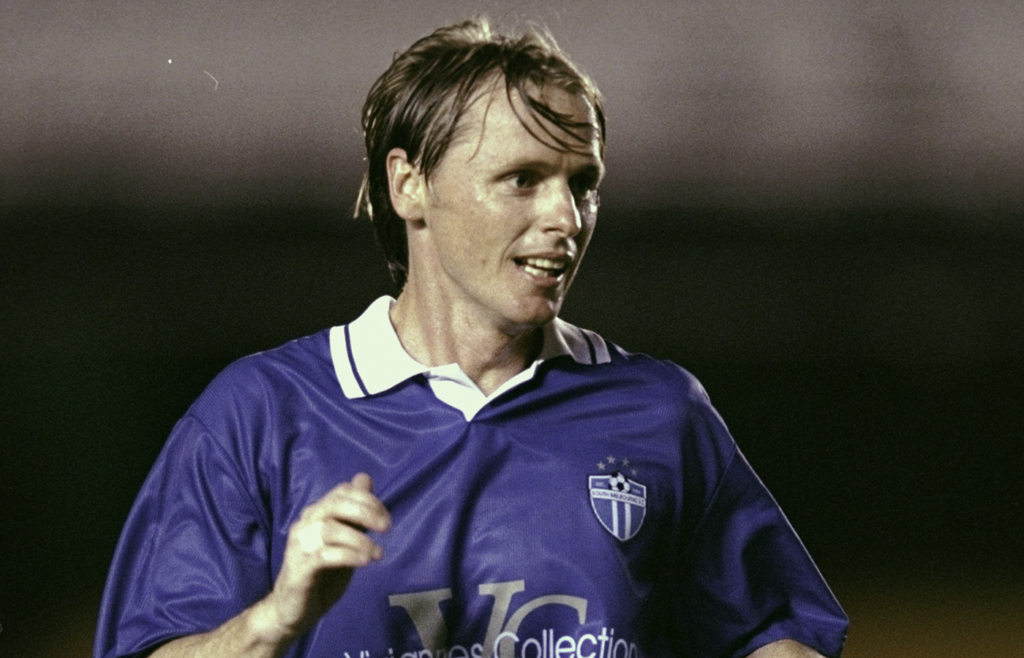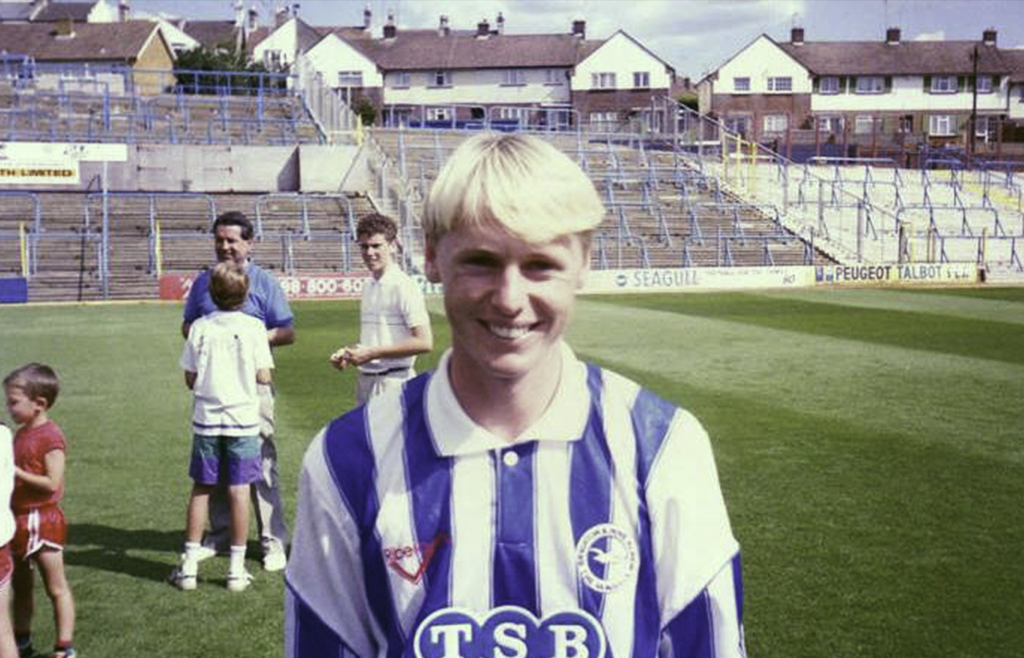If it wasn’t for his work ethic, resilience, passion and a bit of persistence, former professional footballer David Clarkson doesn’t know where he would have ended up after his retirement.
He certainly wouldn’t now be working for an A-League club, helping to promote football in the state where he grew up and launched a football career.
Over the next two weeks, Clarkson, who grew up in Tasmania and launched a professional career that saw him go on to represent Brighton and Hove in England and South Melbourne in the National Soccer League, will be promoting Western United’s two ‘home’ A-League matches hosted on the ‘Apple Isle’.
In an all too familiar experience for former players when transitioning out of the sport when he retired in 2003, Clarkson said he would have been lost if he hadn’t been able to obtain employment within the sport over the better part of two decades.
“I knew that I had something to offer to football and quite frankly I don’t think I was good at anything else. It was either that [working in football] or end up homeless, probably.
“It’s really, really tough to stay in the game in a full-time capacity. If we’re talking about earning a living, supporting a family, that was hard as a player; it’s even harder once you stop playing.
“I’ve never really had real job security, but I’ve just been lucky to get work in the sport. I love the game and I’ve never given up on the game because the game has given me so much joy.”

Since his retirement Clarkson landed opportunities in the football industry through what he describes as a combination of work ethic, chance and being a bit of a ‘pain in the arse’.
“There aren’t many jobs in football or even in the media and it’s very limited in what we [retired players] can do. One thing that helped me was that I always backed myself, but I felt like I almost became a pain in the arse for people because I was just relentless, trying to stay in the game.”
Clarkson, having worked with Ange Postecoglou at South, scored his first major gig as the assistant coach for the Australian under-17 and under-20 FIFA World Cups between 2004-06, before joining Nike, Football Victoria and taking up various roles in the media and with sports consultants.
Now through Western United as ‘Football Ambassador, Tasmania’, Clarkson has the opportunity to be involved in a club environment again for the first time in 18 years, since he departed South Melbourne – a club where he won successive NSL titles and played at the FIFA World Club Cup in Brazil.

Fortuitously, it happens to be his connection to his home state of Tasmania, where Western will play against Central Coast Mariners (Saturday 17 April) and Wellington Phoenix on Thursday 22 April, that has provided a special emotional connection to the Western Melbourne club.
“I’ve never been involved in a club up until this moment since retiring. In the West [of Melbourne] it’s a hotbed for football with so many different nationalities and when the club does get a stadium, that that’s going to create so much opportunity for young people, so I’m attracted to that; I like the Western United model.
“Obviously on top of that, you throw in the relationship with Tasmania. Tasmania will always be in my heart. This is where I grew up and I had a great childhood and it taught me my football.
“So those two things coming together is why I’m taking up this challenge and my challenge is, yes helping get bums on seats for these two matches, but’s also about creating some clear and sustainable pathways for young players male and females to pursue their dreams, which I didn’t have. There has always been wonderful talent down here.”
Having retired a year before the disbandment of the National Soccer League, Clarkson believes that through the appointment of former players as club ambassadors, or players re-connecting through the PFA’s Past Players Program, more former players can enjoy the opportunities football provides.
“I’m a big advocate of respecting the past – not living in past – but respecting it, and there have been some wonderful players and people who have been lost to the game and this Past Players Program that the PFA has put together is helping to repair the relationship between those players who have not been involved in the game.
“There are only so many jobs in any industry; at least if those people, even if they don’t choose to work in the game, they still love the game and they still have an affiliation with the club that they play for so that means they still have skin in the game, so there’s a connection with the game you love instead of ‘you’ve finished playing the game, that’s it, it’s all over’.”
Click here to find out more about the PFA Past Players Program







